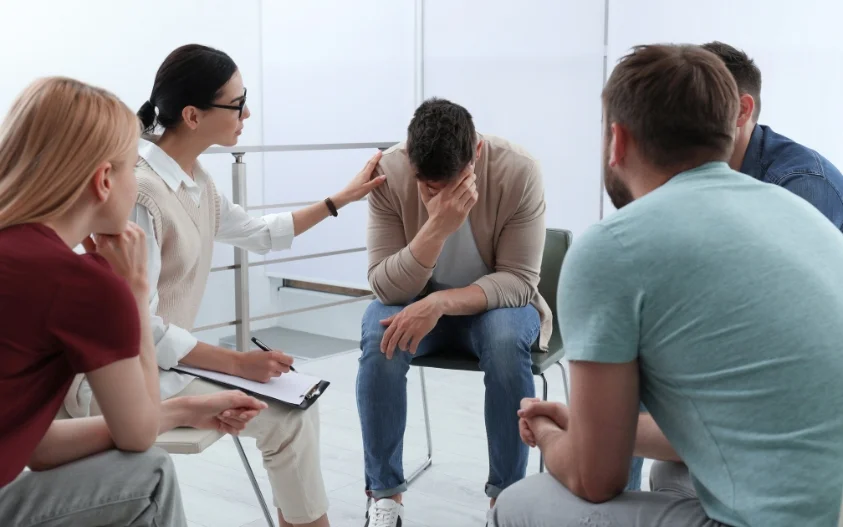24/7 Helpline:
(866) 899-221924/7 Helpline:
(866) 899-2219
Learn more about Morphine Rehab centers in Floyd County
Morphine Rehab in Other Counties

Other Insurance Options

Group Health Incorporated

Choice Care Network

Cigna

Magellan

Sliding scale payment assistance

United Health Care

Access to Recovery (ATR) Voucher

Multiplan

ComPsych

Ambetter

Covered California

BHS | Behavioral Health Systems

Molina Healthcare

CareSource

CareFirst

Regence

Ceridian

UMR

American Behavioral

Holman Group

Our Place – Drug and Alcohol Education
Our Place - Drug and Alcohol Education is a non-profit rehab located in New Albany, IN. Our Place - ...

LifeSpring Health Systems – Floyd County Office
LifeSpring Health Systems is a premier provider of co-occurring mental health and substance use diso...

Groups
Groups is private healthcare company providing outpatient treatment for opiate addiction using weekl...












































